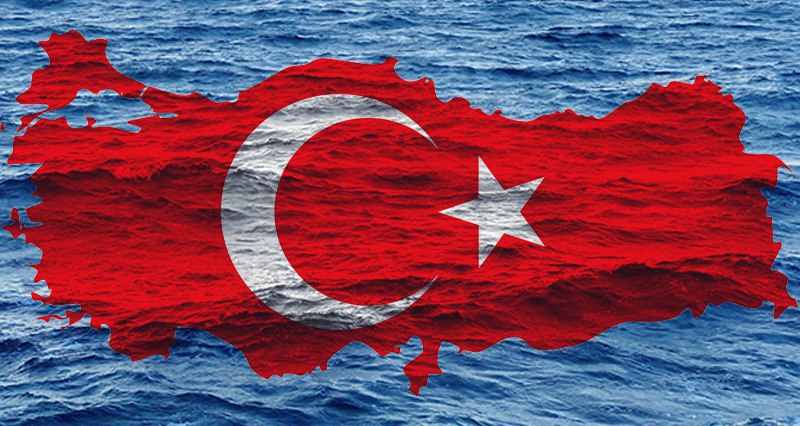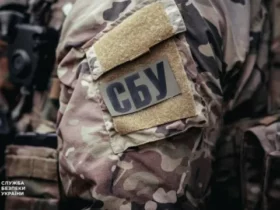We have been in Anatolia for a thousand years under the roof of the Turkish State. There has never been any other state, empire or civilization in this most distinguished part of the world that has achieved such a long reign, and whose geopolitical fate had ever lasted forever in this land. There were some ups and downs during this time. The peak, stagnation and decline, all had begun on the seas. The period of decline, which began with Lepanto (1571) on the seas and with Karlowitz (1699) on the land, had brought our ancestors to a point of losing their homeland and their state for the first time, with the invasion of Istanbul on the morning of November 13th 1918, with a total of 55 warships. As if it was not enough, on May 15th, 1919, the Greek armies had landed on the shores of Izmir.
Reasoning or dogma?
The Ottoman Empire, which ruled by dogma rather than technology, science or reason, was a backward agricultural empire that surrendered its trade to foreign powers going into the First World War, its point of extinction. It did not have enough strength to resist the invasion from the sea, where the forward defenses should have always begun, in the face of the firepower of the Steel Empires. Nevertheless, the only reason that had delayed its earlier annihilation was its unique geography. It was being held as a buffer state against the industrialized and strengthened Tsarist Russia, while it was carving its way across Mediterranean and therefore to India, threatening the British Empire. But this did not last for too long.
Its fate was determined, with the transition from coal to petroleum in the industry and in the navy, and with the growing mercantile interests, and eventually partitioned. The Talks of Reval 1907, 1916 Sykes-Picot and 1917 Balfour were the breaking points. Sevres, signed by the Ottomans at the end of the First World War in 1920, had not only torn the empire apart, but had also dragged it away from the high seas. It was turned into a tiny state sharing a coast with Armenia, while its coastline was shrunk only to 500 km, having access only to the Black Sea.
SEAS AND REASON
The Ottomans, while drifting away from reason, also drifted away from the seas. The navy fell victim to the capitulations, imperialism and a backward continental mindset on the home front over the past years. They adapted to the age of sailing 100 years behind the rest of the world, only in the sixteenth century. The heavy costs of having only 20-30 professional naval ministers/Commander-in-Chiefs of the Navy out of total 216 in the entire 600-year-old imperial history was paid for heavily in the Battles of Chesma, Navarino and Sinop with defeats. The Ottoman Empire, which had drifted away from science and industrialism, a key point to establish a maritime power, was unable to produce industrial goods as well, and was doomed to collapse. It had to fight with its blood, against their steel. Entireties of Egypt, Cyprus and Libya were lost before the Balkan Wars; and then the Adriatic and Aegean were lost after, then Danube and Suez basins were completely disconnected from the Anatolian peninsula. In the First World War, the invading navies faced no difficulty when coming to Gallipoli, and on the morning of April 25th 1915, Commander of the 19. Division Lt.Colonel Mustafa Kemal, had to order the 57. Regiment to die, in Arı Burnu.
INDEPENDENCE AND FOUNDATION
The Treaty of Sevres, which was written to clear off the Turks from much of the Thrace and Anatolia, was torn apart on the morning of September 9th, 1922 by the troops under Mustafa Kemal’s command. Thus, the unity of the Anatolian peninsula with Thrace was preserved with this War of Independence. They were to protect all their four seas and their 8,300 km long coastlines. Mustafa Kemal Ataturk had seen that Anatolia could not survive without a navy, but naval power alone would not be enough either. The Turks and Anatolia must be “maritimized” along with the state and state institutions. The first line of defense must begin at the sea.
It must have switched to the facade of a maritime civilization, despite its 900 years old continental characteristics. The Eternal Commander-in-Chief, Mustafa Kemal Atatürk, quickly established a navy that will be the first line of defense of the new republic, despite that the state did not even possess an operational vessel, let alone possessing a qualified admiral or a navy at full combat readiness. In order to close this gap, he had founded the Ministry of the Navy and put his best friend, the former President of the Independence Tribunals, Retired Artillery Major Ihsan Eryavuz in charge. Eryavuz, who had accomplished very important works, by taking a significant share of the state budget in a short time, became the focus of envious and reactionists within the state. He was drawing a lot of attention, especially his relations with the Prime Minister Inonu which brought a lot of contention.
Thus, the Ministry that was established on December 30th, 1924, was closed on January 16th, 1928. The so-called corruption scandal called “Yavuz-Havuz (Floating Dock)” was raised with the consent of the Prime Minister and the Chief of the General Staff Marshall Çakmak and with the propagation of the media; almost all the staff testified and Eryavuz was sentenced for two years in prison. Thus, our maritime policies and our Navy were governed by the General Staff in Ankara for 21 years, until the Naval Forces Command were eventually established in 1949. Ataturk maintained his support for the development of the Navy, despite all these difficulties. He had honored the Navy at every opportunity he could get. In 1937, while the national avionic boom in aeronautics was experienced, the Navy built its first ship at Golcuk Shipyards and named the oil tanker after Golcuk.

TURKEY AFTER ATATURK
After November 10th, 1938, Turkey had experienced a sharp geopolitical dispersion. Efforts to develop the national defense industry significantly plummeted. Turkey, after being a part of the Atlantic Alliance after World War II, was armed with the tanks, aircraft and ships, phased out by the US Army and the Navy. The new force structure of military forces has also affected the concepts and doctrines of Turkish military might. Turkey had become a part of strategic plans created by the United States in order to contain the Soviet Union from the south, as a rimland country. The state’s most important institutions went under full control of the Atlantic Alliance and the US-led military political doctrine when it entered NATO in 1952. Turkey could not focus on its own national geopolitical priorities, given the Cyprus and Aegean crises. Although during the successful Intervention in Cyprus and the Aegean Continental Shelf crisis, it might have acted outside the control of imperialism, it was still never allowed for the Turkish state to leave its main course of NATO and Western interests.
They did not achieve this with a foreign intervention. They used the pro-mandate groups in the homefront. On the one hand, they managed to demote the founding values and the Ataturk himself, sliding away from its essential ideological format into a personality cult. But most importantly, they made the Turks lose their confidence. This insecurity persisted until the end of the Cold War. After the 90’s, Turkey gradually began to explore itself, its own geography, and the Turkic World. It was a fast-paced process. Turkey’s contribution to the security of NATO and the West diminished after the USSR and the Warsaw Pact disintegrated. Turkey, meanwhile, had to face the painful truth that it could not hand its national security over to another state or an institution. Then it started working on its own, which disturbed imperialism. They had come up with the second version of the Sevres when they no longer needed Turkey.
LOSING CONTROL
American Imperialism has initiated major projects in our region with no limits after September 11th, 2001. The result was devastation, blood and tears. Turkey had taken great steps, especially in regards to the Navy. It has strengthened its geopolitical position in the Aegean, the Black Sea and in the Eastern Mediterranean. The defense industry has kicked into high gear. Unfortunately, this process has been awash in nefarious plots.
The plot set up by the treacherous FETO network did not eliminate the naval force structure by neutralizing it with sudden attacks as had occurred in the past, but rather by gradually paralyzing the command structure. Turkey, where up to 15 Admirals and hundreds of other officers were arrested overnight, did not even blink an eye. Taking actions in the name of imperialism, FETO has chosen the navy as its primary target in line with the principle “if you were going to take over Anatolia, you have to take over the Navy first.”
Has not history already proven this? The patriotic section of the Anatolian people responded to these plots at massive rallies on December 13th, 2012 and on April 8th, 2013, when they had come to tear down the Walls of the Silivri Prison. Those walls were torn down in the spring of 2014. The spirit of National Power (Kuvay-i Milliye) was reborn. FETO responded to Turkey by opening fire on civilians on the night of July 15th, 2016, when it had just begun to take a path of independence again. The Turkish Nation had suffered casualties but did not surrender their state. Since then, the activities carried out under the name of FETO purges have continued.
THE FIGHT AGAINST FETO
Turkey has achieved some great and important successes in the fight against FETO, but the strategic level of the purges is still in question. Many journalists, politicians and thinkers associated and affiliated with imperialism and with FETO continue their activities. The most important sign of the severity of the FETO activities will be whether Turkey’s actions to protect its interests in the Eastern Mediterranean, Aegean and in Cyprus are preserved in the coming days or not.
This is the reason that these areas are some of the most important strategic areas for Turkey in terms of combatting imperialism. Imperialism, while ready to exploit the social and economic crises created because of the COVID-19 pandemic, will also use FETO’s soft power, either by some shady social media accounts, or through some pro-mandate groups within us. On the other hand, it should be no surprise if these activities intensify after the ousting of Admiral Cihat Yayci, an important name in the fight against FETO. In this regard, some signs are being shown on FETO-affiliated websites, YouTube channels and news articles that were published abroad. For example, the Blue Homeland is being defined as part of Turkish imperialism. Greek media also defined it as Turkish revisionism and neo-Ottomanism.
Some journalists in Turkey can say that the Ministry of Foreign Affairs and the Armed Forces are greatly disturbed by the concept of Blue Homeland. In other words, imperialism is trying to tell Turkey “Do not try to protect your maritime jurisdiction areas, just surrender them” by fugitive FETO thinkers and inside pro-mandate groups. We can already predict that in the coming days, the topics of the Blue Homeland, the Maritime Border Agreement with Libya and the developments in defense cooperation with Libya will be devalued, while some intense smearing and discrediting campaigns from FETO social media accounts will take charge. In the context of Turkey shifting away from its traditional Western/NATO line, these points can be brought up as a possible solution: unconditional rapprochement with Greece, suspending the idea of the Blue Homeland, a federal solution for Cyprus, full surrender to the US plans in Syria, and the deactivation of the S-400 systems.

Pixabay
STAYING STRONG IN THE BLUE HOMELAND
Turkey is secure and prosperous when the navy is stronger; and in fear and devastation when the navy is weak. Remember, those who came to partition Anatolia have always come by the sea. Every time when the Navy was strengthened, it was hit either by imperialism or by internal opposition elements. History should not repeat itself in the 21st century. Imperialism should never be given this opportunity again, especially given that the Navy is experiencing its strongest, and its most active period ever. July 15, 2016 should always be on top of our compasses as a warning beacon. New betrayals and new deceptions must never be allowed. It should be noted that the path set by Mustafa Kemal Ataturk’s is the only one that will take us to our righteous port, with the lessons we learned from our recent past, regardless of the circumstances, when drawing new routes. That path passes through the Blue Homeland in the 21st century.

















Leave a Reply